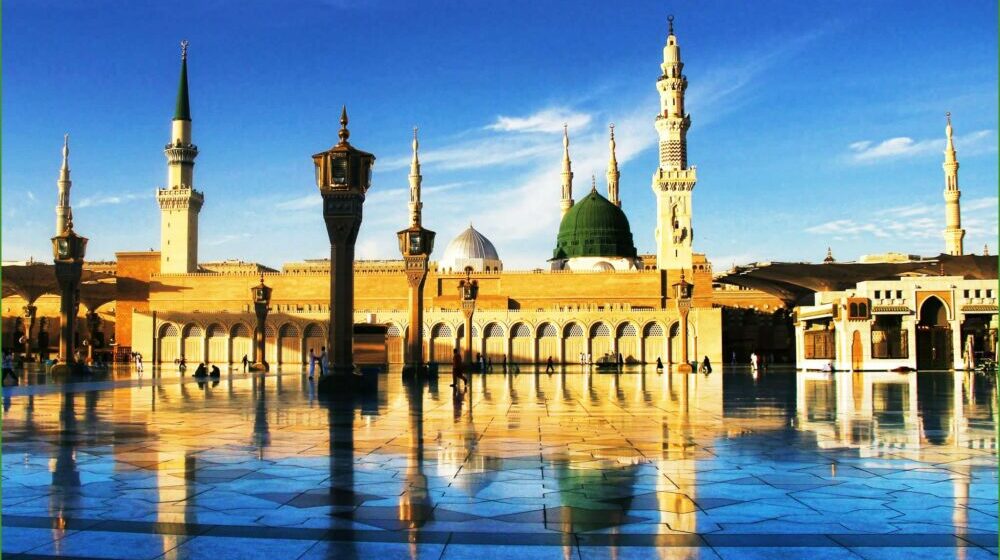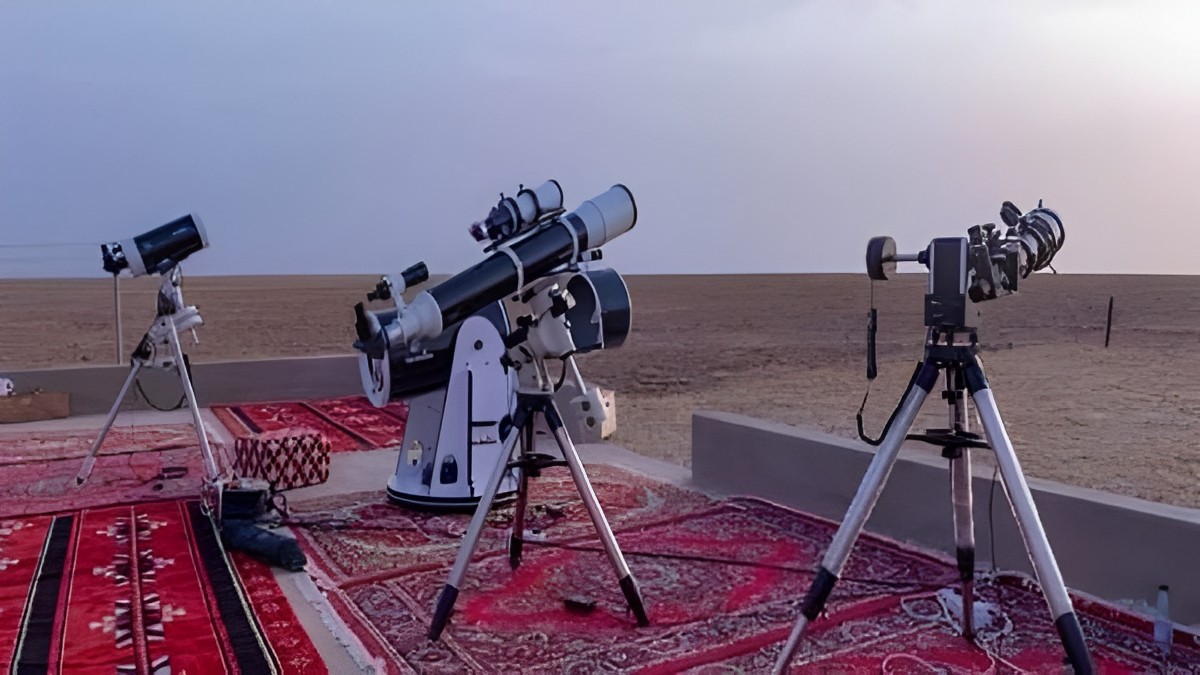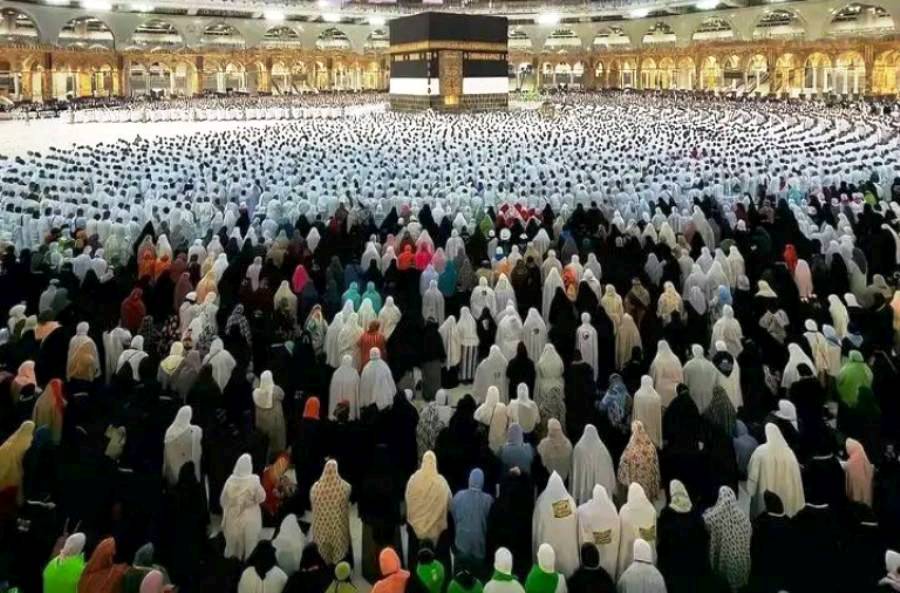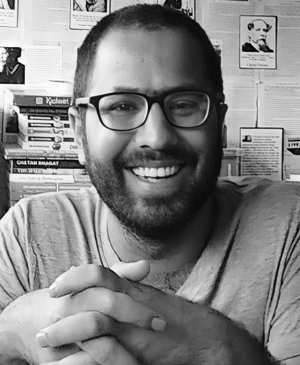by Muhammad Nadeem
Humanity owes an eternal debt of gratitude to Prophet Muhammad (Peace be upon him) for the immense knowledge, guidance and hope he left for all people and for all times to come.

Prophet Muhammad (Peace be upon him) was sent as a mercy to all humanity and is an excellent example for those who hope to earn Allah’s pleasure. He demonstrated utmost mercy, justice, and excellent character throughout his life.
The Prophet was exceptionally merciful and compassionate. His mercy encompassed even his staunchest enemies. When the people of Taif mistreated him, he prayed for their guidance rather than destruction. When Makkah was conquered, he pardoned his enemies even after years of persecution. His mercy extended to animals, children, women, and slaves. He kissed and stroked children’s heads and stood up for the rights of slaves and servants. He never sought revenge unless justice absolutely required it.
The Prophet’s sense of justice was unmatched. He did not discriminate between rich and poor, strong and weak, Muslim and non-Muslim. When a woman of noble lineage stole, he insisted she face the prescribed legal punishment. He established rights for servants and slaves and harshly reprimanded those who insulted them. He distributed war booty equitably and refused to grant requests that violated justice. Even regarding his wives, he was meticulously just in treatment and visitation.
Allah praised the Prophet for his excellent character. He was known for his honesty and trustworthiness before his prophethood. He displayed extraordinary courage in conveying the message, fearing none but Allah. His worship was consistently dutiful. He disliked overburdening his followers. His generosity was peerless; he gave continuously in knowledge, time, advice and material possessions right up until his death when he left nothing behind.
Under His Banner
Full obedience to the Prophet’s teachings is a requirement of faith. Love entails following his example, heeding his warnings against innovation, and avoiding excess. Supporting him means defending his person, household and companions against criticism. Those who contradict his teachings cannot truly claim to love him.
The Prophet’s biography provides encounters with his excellent example and guidance. In Madinah, he built a state based on justice and mutual rights. During the Hudaybiyyah treaty, he demonstrated that keeping one’s word is paramount. His humility, worship, and character stand as timeless guidance for those seeking closeness to Allah. Contemplating such encounters helps Muslims uphold his Sunnah long after his earthly life.
The Prophet’s rights over us are immense. Belief in and wholehearted obedience to him is obligatory. His example contains the answers to every problem and solution to every ill. The greatest honour lies in adherence to his divinely revealed methodology and imitation of his perfect morals.
The Mission
In every age, Allah sent prophets and messengers to guide humanity towards truth and righteousness. However, some prophets hold a uniquely special place due to the enormity of their mission and the far-reaching impact they have on the world. Prophet Muhammad (Peace be upon him) is undoubtedly one of these exceptional prophets whose guidance fundamentally transformed Arabia and the world forever.
The Prophet was born in 570 CE in Mecca, in present-day Saudi Arabia. Mecca was a trading hub where different tribes converged, and idol worship was rampant. Female infanticide was tragically common, and tribal feuds and alcoholism were widespread. The Arabs were mostly unlettered people who were unaware of any organised religion or civilisation.

It was in this gloom that the light of Muhammad (Peace be upon him) shone forth, presaging the beginning of a new era of spiritual and societal renaissance. The revelations he received over 23 years taught the oneness of Allah, who is without parents, partners or progeny. They emphasised sublime morals and upright character as the basis of faith. He instilled courage and integrity in the weakest members of society and established a brotherhood that rose above tribal allegiances. His teachings promoted intellectual inquiry, urging people to reflect on nature and their own existence.
Within a short period, Arabia underwent a drastic transformation as it willingly embraced these benevolent teachings. Tribal feuds diminished, female infanticide was abolished, and people refrained from alcohol consumption. For the first time in centuries, Arabia pulsated with the enthusiasm of monotheistic belief and was unified under a common identity. This monumental spiritual and moral revival soon overflowed to neighbouring lands as Muslims carried the message of truth, justice and beauty to different corners of the world.
Now, almost two billion Muslims across the globe continue to draw inspiration from the character of the Prophet and apply his teachings in their daily lives. A glimpse into Islamic civilisation’s crowning achievements in diverse fields like philosophy, arts, architecture, literature and mysticism reveals the wide-ranging influence of the message of the Prophet.
However, the blessings of the light of Prophet Muhammad (Peace be upon him) are not restricted to Muslims alone. His compassion and moral excellence left an indelible mark on all of humanity in multiple ways:
Human Dignity and Equality
Pre-Islamic Arabia was characterised by rampant class divisions, racism and tribal pride. Slaves and the poor were socially ostracised and denied their rights. Women were viewed as inferior creatures who lacked intelligence. Prophet Muhammad (Peace be upon him) courageously stood up against these injustices that plagued society.
He declared that all humans are equal before Allah, with the only distinction being personal character and piety (taqwa). He welcomed slaves, the poor and women into the fold of Islam and accorded them their long-denied rights to live with dignity. Bilal, who was an African slave, was appointed as the first muezzin of Islam. Under the leadership of the Prophet, social status came to be determined by taqwa and moral excellence rather than class, colour or gender. This revolutionary message of human equality and unity dealt a blow to racism, class divisions and gender discrimination that persist globally even today.
Empowering Women
Pre-Islamic Arabia treated women as mere possessions with no rights or status. Female infanticide was rampant, and women were barred from inheriting property. Prophet Muhammad (Peace be upon him) actively converted this reprehensible attitude towards women. Islam prohibited infanticide and beseeched his followers to raise their daughters with love and compassion.
Under his guidance, women were allowed to inherit, own property, conduct business, learn and teach others. The Islamic tradition is rich with stories of highly accomplished Muslim women who were scholars, mystics, leaders in their community and even fought in battles. By empowering women and reinstating their status in society, the Prophet pioneered a movement of female emancipation which even some modern societies lack.
Justice, Charity and Good Morals
In the era of ignorance, a few powerful chieftains dominated the impoverished masses. The weak and poor were deprived of their rights. Prophet Muhammad (Peace be upon him) taught that a society’s greatness is determined by how it treats its weakest members. He instituted compulsory charity so that wealth could circulate among all classes. He also encouraged freeing slaves, feeding the hungry, caring for orphans and animals and countless other acts of benevolence.
The Prophet dealt justly and kindly even with his staunchest enemies. He bore patiently the most vicious attacks on his name, character and message. His sincere efforts to guide others stemmed from selfless compassion, not a desire for power, prestige or revenge. This unwavering commitment to justice and forgiveness in the face of animosity is an inspiring example for all.
Cultivating Taqwa and Spirituality
The Arabian society was steeped in materialism and marked by wanton licentiousness. The Prophet awakened people to higher concerns beyond mundane survival and physical gratification. He taught that this world is ephemeral while the afterlife is eternal.

The revelations from Allah urged people to reflect, be grateful to Allah for His blessings, remember Him often, supplicate Him and strive to attain His good pleasure. Prophet Muhammad (Peace be upon him) instilled taqwa in all aspects of a Muslim’s life by teaching that each lawful worldly affair, even eating and sleeping, can also become spiritually elevated through purity of intention. The ethical paradigm of balancing worldly pursuits with faith, self-discipline and concern for the afterlife provides a healthy template for holistic spiritual growth.
Universal Religious Brotherhood
For the first time in Arabia, Prophet Muhammad (Peace be upon him) united the people under the umbrella of religion. His teachings transcended race, colour, class and even creed.
When the Prophet entered Madinah, his arrival marked the inception of the Constitution of Madinah. This historic covenant between Muslims, Jews and other non-Muslim residents opened the door for people of various faiths to live cooperatively as allies.
Renowned non-Muslim intellectuals and mystics like Bahira, Mobeed and Nestorius held the Prophet in high regard and recognised his Prophethood. The Prophet’s legacy of leading with compassion and fostering interfaith ties offers much-needed guidance in our era plagued by religious divides.
Spreading Education and Rational Thinking
In pre-Islamic Arabia, very few people could read or write. The very first verse ordered the Prophet to read. Islam placed immense emphasis on seeking knowledge, reflection and discovering the universal laws of Allah in nature.
Prophet Muhammad (Peace be upon him) encouraged literacy among both genders. Mosques doubled as educational centres where people instructed each other in spiritual and worldly subjects. This led to an awakening in Arabia, especially among women, who enthusiastically learn and teach others. Within a few decades, Arabia outpaced other nations by producing scholars, jurists, physicians and mystics who made lasting contributions to human civilisation.
The Islamic civilisation blossomed into an intellectual powerhouse where scholars subscribing to all religions gathered and freely exchanged ideas. The spirit of rationality and scientific temper introduced by Prophet Muhammad (Peace be upon him) influenced great Muslim polymaths like Ibn Sina, Al-Khwarizmi and Ibn Khaldun whose pioneering work hugely impacted the Western Renaissance.
Prophet Muhammad (Peace be upon him) taught that a society’s well-being depends on each citizen fulfilling their obligations sincerely. He urged mutual advising and forbidding evil: every citizen must constructively criticise wrongdoings within one’s capacity. He said that the parable of believers is like one body – when one part hurts, the entire body is in pain. This underscores the civic responsibility each person owes to society.
Laying The Foundational Pillars for Civilisation
From the nomadic desert life, Arabia underwent a meteoric rise after Islam to become an intellectual superpower within decades. The Prophet seeded the foundational systems and values which catalysed this ascendancy.
Islam champions education, innovation, entrepreneurship, science, art, culture and dignity of labour. The Prophet institutionalised the Zakat (charity) system, which circulated wealth, alleviated poverty and tugged at people’s innate empathy to care for disadvantaged members of society. He built a model city-state in Madinah whose governance policy has inspired Muslim and non-Muslim states throughout history.
These pivotal measures created a fertile ground for an enlightened civilisation to flourish. Muslim civilisation excelled in fields as diverse as astronomy, mathematics, optics, philosophy, industry and architecture. Their universities attracted students from around the world. Leaders like Al-Ma’mun and Harun al-Rashid invested heavily in higher learning and research. Coffee houses stimulated intellectual discourse while hospitals provided healthcare.
Mercy for All Creation
Prophet Muhammad (Peace be upon him) taught unconditional compassion towards all creation as a foremost duty of a Muslim. He prohibited abuse towards livestock and beasts of burden. He established rights for animals centuries before animal rights were talked about. He forbade cutting trees or killing animals except for food long before there was any hint of global warming in the air. His empathy for creation was all-encompassing.
The Prophet said: I was sent as a mercy to the entire creation. This mercy transcended boundaries of race, geography or even faith. Muslim armies were ordered to treat prisoners of war humanely and feed them the same meals that Muslims ate. This egalitarian principle won many non-Muslims’ hearts and facilitated Islam’s spread.
The Prophet’s mercy extended indiscriminately to young and old, free and enslaved, humans and animals. Umm al-Mu’minin Aisha described his moral grandeur uniquely when she said: “The morality of the Prophet was the Quran” – meaning his life was the human embodiment of the Divine Message.
A Guidance for Every Era
Fourteen centuries have passed since the Prophet walked the earth. Generations and dynasties have come and gone. Yet, the Prophet’s teachings and magnanimous character continue to inspire billions across the globe to lead ethical lives and contribute meaningfully to society. The Prophet’s legacy has also left an indelible mark on those who sincerely study his life and teachings.
One of the greatest miracles of the Prophet is the everlasting wisdom found in his sayings and example. He guided life in its totality – worship, theology, morality, economics, politics, social issues, family life and everything in between. His teachings possess an astonishing applicability relevant for all times. Even today’s complex challenges like racism, climate change, political corruption, economic disparity, violent radicalization and social breakdown can begin to heal by sincerely applying Prophetic wisdom.
To Perfect the Morals
In the Prophet’s life, we find the tenderness of an innocent child, the empathy of a loving mother and the fierce justice of a wise leader all beautifully rolled into one complex tapestry reflecting different hues of human perfection. He rose to become the man he himself described: “I was sent to perfect noble morals.”
Indeed, the most lasting legacy of Prophet Muhammad (Peace be upon him) is the supreme ideal he embodied of moral and spiritual perfection attained through sincere submission to Allah.

When we open our hearts to the blessings and light of the Prophet, we reaffirm our collective yearning for peace and our refusal to be divided. We revive hope for a more just, peaceful and inclusive world. At a time when ignorance, greed and intolerance threaten us all, we must allow the Prophet’s example to inspire us globally towards greater compassion and humanity.
The road ahead is long and fraught with uncertainty. But if we walk it together with sincerity, patience and wisdom, we can illuminate even the darkest of corners of time with the eternal light of truth, humanity and justice.
Humanity owes an eternal debt of gratitude to Prophet Muhammad (Peace be upon him) for the immense knowledge, guidance and hope he left for all people and for all times to come. By following in the footsteps of the Prophet, humankind will continue to move forward into a brighter era of peace, unity and enlightenment.
(Ideas are personal)
from Kashmir Life https://ift.tt/e9Qhkg0
via IFTTThttps://kashmirlife.net
No comments:
Post a Comment